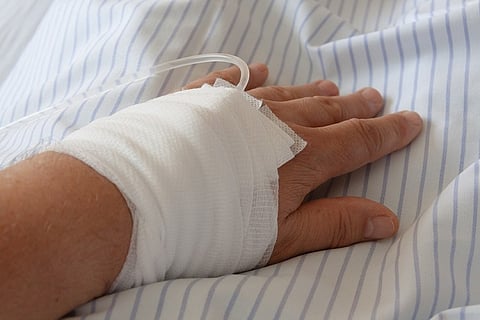

The death of a toddler from a suspected shigella infection in Kerala’s Kozhikode Medical College and Hospital is bringing the state under a blanket of panic, yet again.
Earlier, officials had issued a warning about shigella after three people died in the state due to suspected shigella infection.
The 2-year-old boy, Ziyan, was undergoing treatment at the hospital in Kozhikode for the infection.
In June, state Health Department Officials issued a shigella dysentery alert after 2 people from Kozhikode and 1 from Thiruvananthapuram died from dysentery related deaths.
Shigella is a bacteria, which has been noted to be one of the leading causes of dysentery in the world.
It is spread through contaminated food, water, or even through contact with infected people.
The incubation period for the bacteria is usually within one week, after which time, infected persons may experience abdominal pain, cramps, or bloating. People may also present with fever or diarrhoea, which is blood or mucous stained. Nausea and vomiting are also commonly seen.
In young children, shigella infection has also been known to cause seizures. Unlike most other dysenteries which are caused by viruses, shigella-related dysentery is caused by a bacteria.
“Shigella is a diarrheal disease and is highly contagious. It mostly affects children under the age of 5,” said Dr Jayashree Kozhikode DMO, “It is highly advisable that people follow appropriate personal, food, and water hygiene measures. We also are telling everyone to wash their hands and follow routine hygiene measures.”
In addition to practicing the above, she also encouraged people to drink boiled water.
She further stated that the toddler had most probably contracted the infection from food which was bought from outside.
“The infection is more or less self-limiting and only becomes serious in some persons. As long as personal and environmental hygiene measures are followed, there is not much to worry about,” added Dr Jayashree.